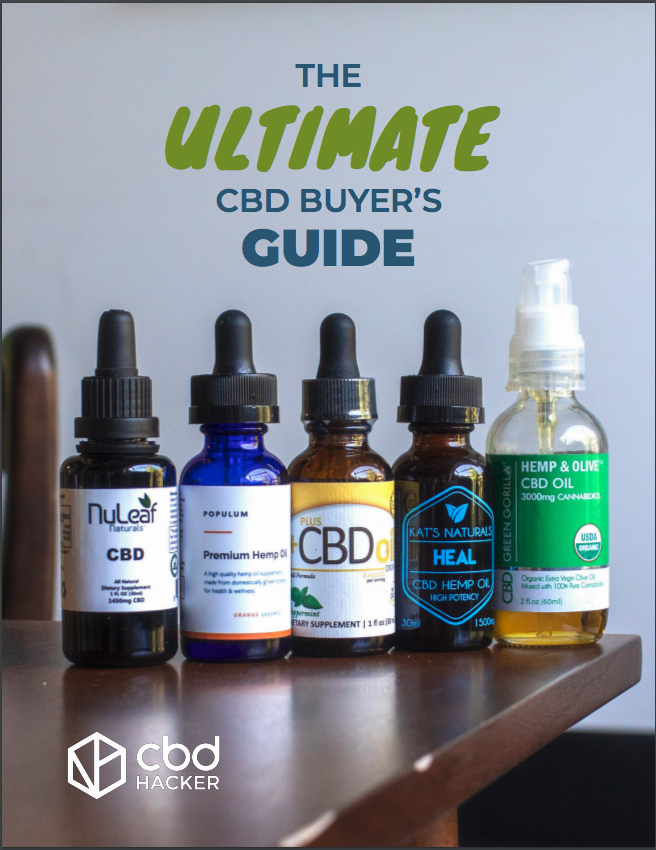It took almost eight months to get around to it, but the US Drug Enforcement Agency (DEA) has finally updated its guidance on hemp.
The new statement on hemp is buried several paragraphs into a press release announcing the agency’s intention to expand scientific and medical research on marijuana. This announcement of hemp’s new status doesn’t actually change any laws — that happened in December with the 2018 Farm Bill.
It does, however, serve as a reminder to law enforcement that “hemp, including hemp plants and cannabidiol (CBD) preparations at or below the 0.3 percent delta-9 THC threshold, is not a controlled substance, and a DEA registration is not required to grow or research it.”
This Week’s Top CBD Deals
NuLeaf Naturals
Discount: 20%
Code: cbdhacker
Pure Hemp Botanicals
Discount: 20%
Code: cbdhacker20
4 Corners Cannabis
Discount: 20%
Code: Hacker20
Populum
Discount: 15%
Code: Hacker15
Mission Farms
Discount: 20%
Code: cbdhacker
Joy Organics
Discount: 15%
Code: cbdhacker
In CBD sports news this week, Rob Gronkowski (the former NFL tight end) joined the growing number of athletes that have put their names behind a CBD brand. He is joining with Abacus Health to promote CBD products for athletes.
Gronkowski, who announced his retirement in March, talked at a press conference this week about the myriad injuries he sustained during his nine-year NFL career. CBD, he says, has been essential to his recovery, and he wants the NFL to stop penalizing players for using the substance.
“For the first time in more than a decade, I am pain-free,” Gronkowski said. “And that is a big deal.”
This week was a bad one for Hawaii hemp farmers. Over half of the hemp crops growing on the island state were destroyed after being deemed unusable due to elevated THC levels.
Growing a crop of hemp with too much THC is one of the perils of hemp farming (the amount of THC being the only thing that differentiates hemp from marijuana). In Hawaii, that problem has been compounded by the difficulties of finding hemp cultivars that will grow in a tropical climate.
Due to Hawaii’s climate, the state could potentially see multiple hemp crops in a year. But cultivars developed in Canada or Europe are proving to be problematic so far.
Stay in the know
[caldera_form id=”CF5b05eba6de634″]
In Kansas, a former elementary school teacher is facing felony charges for selling hemp flower in her CBD store. Annie Martin and her fiancé Sean Lefler own Free State Collective, which was raided by the Kansas Bureau of Investigation earlier in the year.
The KBI seized inventory, cash from the register, and iPads used to run their business, despite lab reports from CBD manufacturers proving their products to be hemp and not marijuana. They have now been informed that they face up to 206 months — more than 17 years — behind bars for their alleged offense.
Kansas launched an industrial hemp research program earlier this year, but the murkiness of the laws in the state surrounding hemp have created a confusing and even frightening situation for entrepreneurs in the CBD industry.
The hail storms that wreaked havoc on Oregon’s hemp crops this summer serve as a reminder of the necessity for crop insurance for hemp farmers.
This week, the USDA announced that hemp farmers growing hemp for fiber, flower or seeds will be able to get that insurance — for the 2020 crop year under the Whole-Farm Revenue Protection (WFRP) program.
According to the agency’s news release, farmers will need to be part of a state or university research pilot program to be eligible for insurance. That is, until the USDA comes up with its regulations for hemp farming (which is proving to be a complicated process).
More From CBD Hacker This Week
Are you thinking of trying CBD oil for anxiety? Find out what the latest research has to say about this popular natural remedy.
Best CBD for Sleep: Rest and Relaxation With CBD
Getting a good night’s sleep helps your day-to-day mood and productivity. How exactly can CBD help improve sleep, and will it work for you?
“Made in Colorado” is a fairly constant refrain when it comes to hemp products, and that’s probably not going to change any time soon. The nation’s largest hemp processing plant opened this week in Colorado City, a town boasting fewer than 2,500 residents.
Paragon Processing’s 250,000-square-foot facility will add more than 250 jobs to the local economy – and by the end of the 2019 harvest, the company is hoping to be processing two million pounds of hemp each month.
Colorado legalized hemp in 2012 and has led the industry in growing and processing the crop.
For people crossing the US/Canada border, the rules about hemp can be confusing. The substance is legal in both countries but, confusingly, it remains illegal to carry any cannabis products across the border – in either direction.
Two Canadians, crossing the border into Washington state with CBD oil this summer, have been banned from entering the US for life. In both cases, the CBD was found during secondary customs inspections.
And on the Canadian side? With its new slogan “Don’t bring it in. Don’t take it out,” the Canada Border Services Agency wants people to understand that carrying marijuana or cannabis-derived products across the border remains a serious criminal offense.
As to consequences for being caught with cannabis products at a border crossing, CBSA spokesperson Jacqueline Callin told CTV News that CBSA officers “use their discretion…in determining whether any regulatory or criminal enforcement would be appropriate.”





